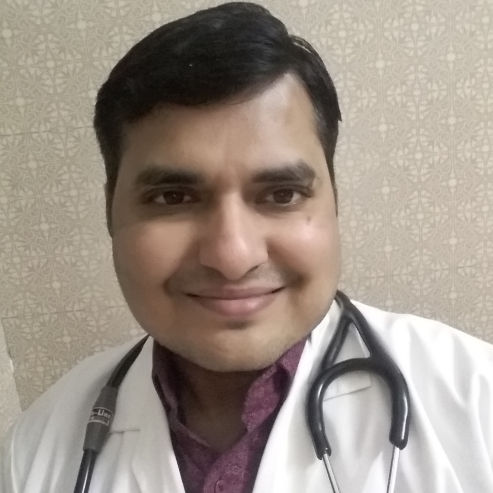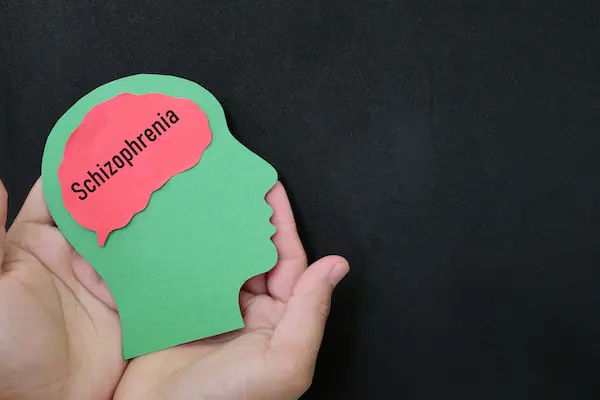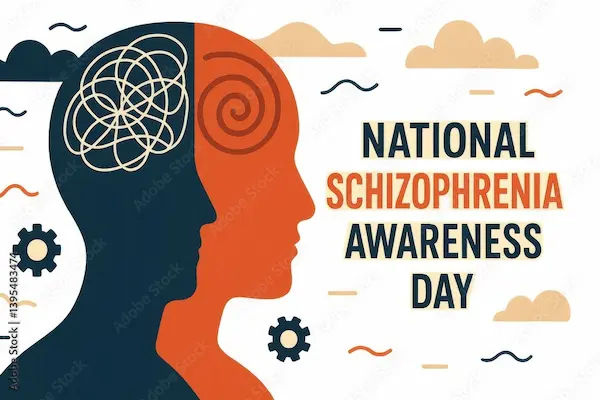What Leads To Signs Of Schizophrenia Treatment Prevention
Learn about schizophrenia—its causes, early warning signs, treatment options, and prevention strategies. Discover how early intervention and support can make a difference.

Written by Dr. Rohinipriyanka Pondugula
Reviewed by Dr. Shaik Abdul Kalam MD (Physician)
Last updated on 13th Jan, 2026

Introduction
Schizophrenia is a complex and often misunderstood chronic brain disorder that affects how a person thinks, feels, and behaves. It can feel daunting to witness a loved one—or even yourself—experience the early signs, which may include social withdrawal, unusual speech, or a seeming loss of reality. But understanding what leads to these signs is the first powerful step towards effective management and hope. This article demystifies schizophrenia by breaking down its potential causes, from genetics to environment. More importantly, we will explore the most effective evidence-based treatment options available today and discuss proactive strategies for prevention and early intervention. Whether you're seeking knowledge for yourself or someone you care about, this guide provides a clear, compassionate roadmap to navigating this condition.
What Exactly is Schizophrenia?
Schizophrenia is not a "split personality," as is commonly mistaken. It is a severe mental health condition characterised by episodes of psychosis, where there is a disconnection from reality. This typically involves a combination of positive symptoms (additions to one's experience, like hallucinations), negative symptoms (losses of normal function, like emotional expression), and cognitive symptoms (issues with memory and focus). It's a spectrum disorder, meaning its presentation and severity vary greatly from person to person. Recognising it as a medical condition of the brain, much like epilepsy or Alzheimer's, is crucial to reducing stigma and encouraging effective care.
Unravelling the Causes: What Leads to Schizophrenia?
The exact cause of schizophrenia isn't pinned to a single source. Instead, research strongly supports a biopsychosocial model, meaning it results from a complex interplay of genetic, biological, psychological, and environmental factors.
Genetic and Biological Factors
A predisposition to schizophrenia can run in families. While no single "schizophrenia gene" exists, a combination of many genes increases vulnerability. If a parent has schizophrenia, a child's risk is about 10%, compared to a 1% risk in the general population.
Brain Chemistry and Structure: Imbalances in neurotransmitters, particularly dopamine and glutamate, are heavily
implicated. Brain imaging studies sometimes show subtle differences in the brain structure of people with schizophrenia, such as reduced grey matter.Prenatal and Perinatal Factors: Complications during pregnancy or birth—such as malnutrition, exposure to toxins or viruses, and oxygen deprivation at birth—may slightly increase the risk of the child developing schizophrenia later in life.
Consult an Psychiatrist for Personalised Advice
Environmental and Psychological Triggers
Genetics load the gun, but environment often pulls the trigger. High-risk individuals may develop the condition when exposed to certain stressors.
- Childhood Trauma: Experiences of severe adversity, abuse, or neglect are significant risk factors.
- Social Stressors: Living in an urban environment, chronic social isolation, and experiencing discrimination or poverty are associated with a higher incidence.
- Substance Use: The use of psychoactive drugs, particularly cannabis (marijuana) in adolescence and young adulthood, has been shown to significantly increase the risk, especially in genetically vulnerable individuals.
Recognising the Early Signs and Symptoms
Early identification can dramatically improve long-term outcomes. The initial phase, often called the "prodromal" period, can begin months or even years before a first acute psychotic episode.
Early Warning Signs
- Social withdrawal and isolation
- A drop in academic or work performance
- Neglect of personal hygiene
- Unusual speech that is vague or tangential
- Bizarre or eccentric behaviour
- Suspiciousness or unease around others
- Inappropriate or blunted emotional responses
Primary Symptoms of a Psychotic Episode
- Hallucinations: Hearing, seeing, or feeling things that aren't there. Auditory hallucinations (hearing voices) are most common.
- Delusions: Fixed, false beliefs that are not based in reality and are not shared by others in one's culture (e.g., believing one is being persecuted or has special powers).
- Disorganised Thinking: Inferred from disorganised speech, where a person switches topics rapidly or gives answers unrelated to questions.
- Grossly Disorganised or Abnormal Motor Behaviour: This can range from childlike silliness to unpredictable agitation.
- Negative Symptoms: Reduced ability to function normally, such as a lack of motivation (avolition), reduced speaking (alogia), and diminished emotional expression (flat affect).
Modern Approaches to Schizophrenia Treatment
Effective schizophrenia treatment is lifelong and multi-faceted, focusing on managing symptoms and improving quality of life. If you or a loved one are experiencing these symptoms, it is critical to consult a doctor for a formal diagnosis. You can consult a psychiatrist online with Apollo24|7 for a confidential initial assessment.
Antipsychotic Medications
These are the cornerstone of treatment, helping to reduce the intensity of psychotic symptoms, particularly hallucinations and delusions. They work primarily by affecting dopamine receptors in the brain.
- First-generation (typical) antipsychotics
- Second-generation (atypical) antipsychotics (often preferred due to a lower risk of severe side effects)
Psychosocial Therapies
Medication manages symptoms, but therapy teaches coping skills for daily life.
- Cognitive Behavioural Therapy (CBT): Helps patients test the reality of their thoughts and perceptions and manage symptoms.
- Family Therapy: Educates and supports families, creating a lower-stress home environment that reduces relapse rates.
- Social Skills Training: Focuses on improving communication and social interactions.
- Supported Employment: Helps individuals with schizophrenia find and maintain jobs.
Coordinated Speciality Care (CSC)
This is a recovery-oriented treatment model for first-episode psychosis. It integrates medication, therapy, case
management, family involvement, and supported education/employment, all from a team of specialists.
Can Schizophrenia Be Prevented?
Since the causes are not entirely known, there is no guaranteed way to prevent schizophrenia. However, strategies focus on early intervention and risk reduction.
Strategies for Risk Reduction
- Strengthening Support Systems: A nurturing, low-stress family and social environment is protective.
- Avoiding Drug Use: Particularly avoiding cannabis and other psychoactive drugs during adolescence and young
adulthood is one of the most actionable preventive measures. - Prenatal Care: Ensuring good nutrition and avoiding viruses and toxins during pregnancy can mitigate one potential risk factor.
- Early Intervention Programmes: For young people showing early warning signs (prodromal symptoms), programmes offering low-dose medication, therapy, and family support can potentially delay or even prevent the onset of full-blown psychosis.
Conclusion
Understanding the path that leads to schizophrenia—an intertwining of genetics, brain chemistry, and life experiences—empowers us to respond with knowledge and compassion, not fear. While the journey is challenging, modern treatment offers real hope and a clear path forward through a combination of medication, therapy, and strong support systems. Although absolute prevention may not yet be possible, recognising early signs and mitigating risk factors, especially substance use in young people, can change the course of the illness. The most important step is always seeking help. If the signs discussed here feel familiar, remember that you are not alone. Reaching out to a mental health professional is an act of courage and the first step towards reclaiming stability and well-being. If symptoms persist beyond two weeks, consult a doctor online with Apollo24|7 for further evaluation and guidance.Consult an Psychiatrist for Personalised Advice
Consult an Psychiatrist for Personalised Advice

Dr Rohit Ranjan
Psychiatrist
10 Years • MBBS, MD (Psychiatry)
Bengaluru
Apollo Medical Center, Marathahalli, Bengaluru
(25+ Patients)

Dr. Kommoju Venkata Eswar
Psychiatrist
8 Years • MBBS, MD Psychiatry
Avenue
Wellness Point, Avenue

Dr. Vivek Pathak
Psychiatrist
15 Years • MBBS, MD (Psychiatry)
Noida
𝗗𝗿 𝗞𝗨𝗠𝗔𝗥'𝗦 𝗙𝗔𝗠𝗜𝗟𝗬 𝗖𝗟𝗜𝗡𝗜𝗖 𝗮𝗻𝗱 𝗩𝗔𝗖𝗖𝗜𝗡𝗔𝗧𝗜𝗢𝗡, Noida
(25+ Patients)

Dr Harish K S
Psychiatrist
6 Years • MBBS, MD Pychaitrist
Bengaluru
Apollo Clinic, JP nagar, Bengaluru

Dr. Kamal Kishore Verma
Psychiatrist
15 Years • MBBS, MD (SPM), DNB (Psychiatry)
Mathura
PEACEFUL MIND CLINIC, Mathura
(50+ Patients)
Consult an Psychiatrist for Personalised Advice

Dr Rohit Ranjan
Psychiatrist
10 Years • MBBS, MD (Psychiatry)
Bengaluru
Apollo Medical Center, Marathahalli, Bengaluru
(25+ Patients)

Dr. Kommoju Venkata Eswar
Psychiatrist
8 Years • MBBS, MD Psychiatry
Avenue
Wellness Point, Avenue

Dr. Vivek Pathak
Psychiatrist
15 Years • MBBS, MD (Psychiatry)
Noida
𝗗𝗿 𝗞𝗨𝗠𝗔𝗥'𝗦 𝗙𝗔𝗠𝗜𝗟𝗬 𝗖𝗟𝗜𝗡𝗜𝗖 𝗮𝗻𝗱 𝗩𝗔𝗖𝗖𝗜𝗡𝗔𝗧𝗜𝗢𝗡, Noida
(25+ Patients)

Dr Harish K S
Psychiatrist
6 Years • MBBS, MD Pychaitrist
Bengaluru
Apollo Clinic, JP nagar, Bengaluru

Dr. Kamal Kishore Verma
Psychiatrist
15 Years • MBBS, MD (SPM), DNB (Psychiatry)
Mathura
PEACEFUL MIND CLINIC, Mathura
(50+ Patients)
More articles from Schizophrenia
Frequently Asked Questions
What are the most common early signs of schizophrenia in teenagers?
Teenage early warning signs often mimic typical adolescent behaviour but are more severe. Look for a sharp decline in grades, social isolation from friends and family, sleep problems, irrational or angry outbursts, and a newfound lack of motivation or hygiene.
Can people with schizophrenia live a normal life?
Yes, absolutely. With consistent, long-term treatment and a strong support system, many people with schizophrenia manage their symptoms effectively, hold jobs, maintain relationships, and lead independent, fulfilling lives. Recovery is an ongoing process, not a cure, but a high quality of life is an attainable goal.
Is schizophrenia hereditary?
There is a strong hereditary component, but it's not deterministic. Having a family member with schizophrenia increases your risk, but it does not mean you will definitely develop the condition. It indicates a genetic vulnerability that may or may not be triggered by environmental factors.
What's the difference between schizophrenia and bipolar disorder?
Both can involve psychotic symptoms. However, schizophrenia is primarily defined by persistent psychosis even in the absence of a mood episode. Bipolar disorder is primarily a mood disorder characterised by extreme swings between depression and mania, with psychosis typically occurring only during these severe mood episodes.
How can I help a loved one who is showing signs of psychosis?
Approach them with empathy, concern, and without judgement. Express what you've observed gently ('I've noticed you've seemed worried and withdrawn lately') and encourage them to speak to a doctor. Avoid arguing with delusions. The most important step is helping them connect with a mental health professional. You can offer to help them find a provider or even accompany them to an appointment.


